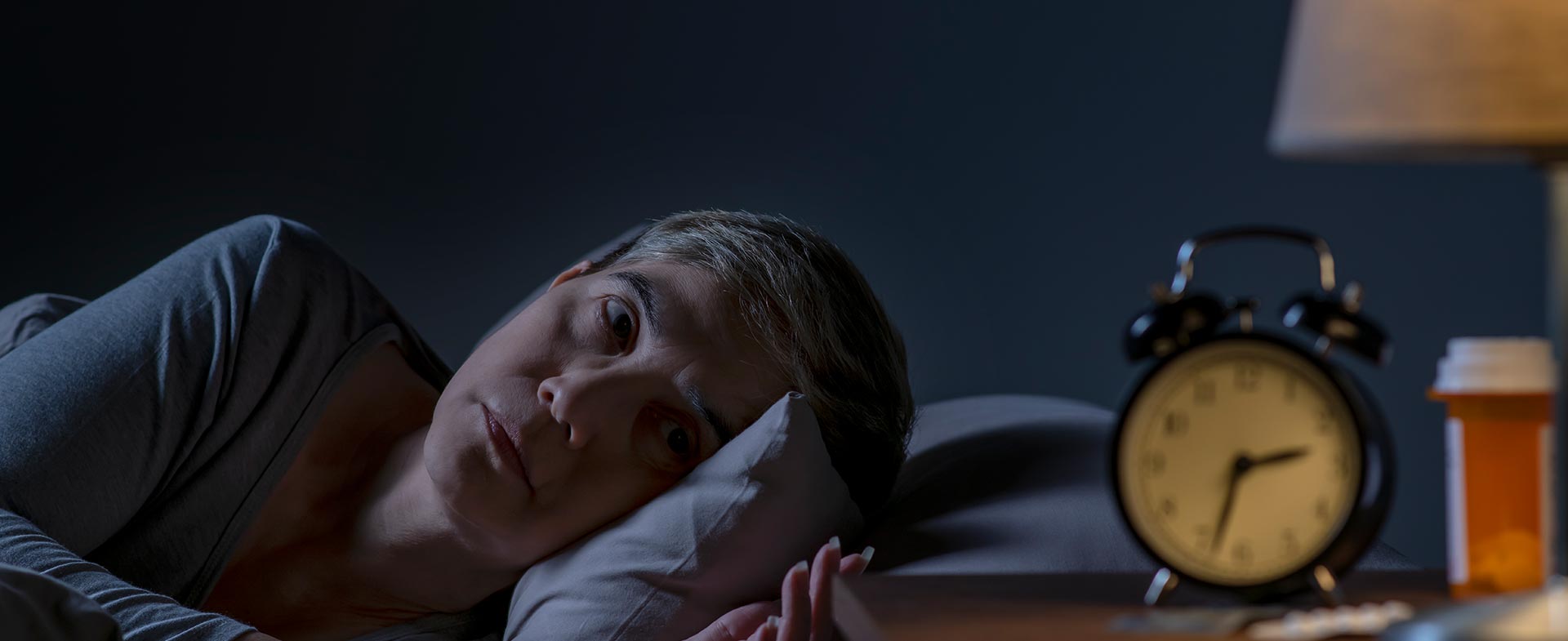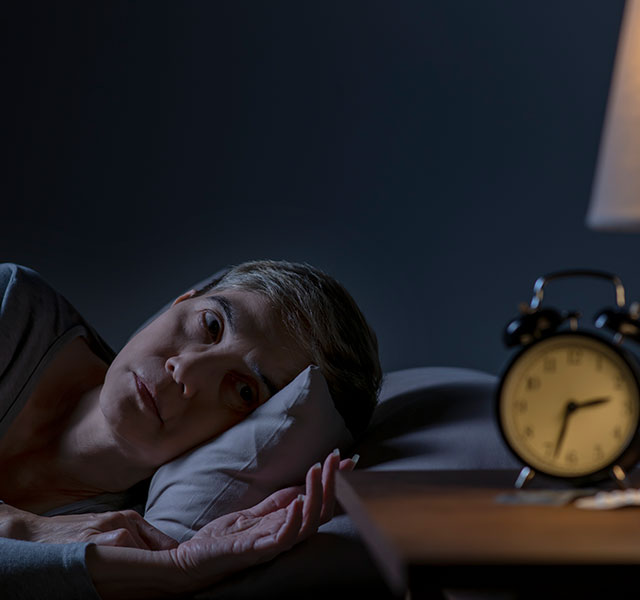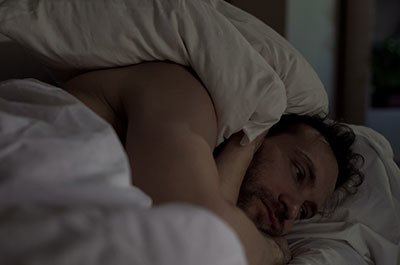Sleeping is an important part of life – we spend almost one third of our time doing it! When you’re asleep, your body is able to repair cells and recover from stressors of the day. Sleep changes are also a normal part of life, unfortunately. Greg Mahr, M.D., a psychiatrist at Henry Ford Health, shares how there might be other factors that contribute to middle-aged adults getting poor sleep.
Life can change as you age – bringing on new health conditions and stressors that can contribute to your quality of sleep,” says Dr. Mahr. “Understanding that this is a natural change and learning to place value on your sleep are great steps towards having a more restful night.”
How Getting Older Impacts Your Sleep
“As you get older, you get less a lot less deep sleep and have shorter periods of REM sleep,” says Dr. Mahr. “In comparison, babies have long periods of REM sleep which is part of the reason why the sleep so much.”
Deep sleep is the sleep your body needs to repair itself and boost your immune system. As the amount of deep sleep you get declines (starting in your 20s and becoming more noticeable in your 40s and 50s), your body has a harder time bouncing back. You might feel this if you wake up feeling tired, sore or sluggish in the morning.
Here, Dr. Mahr shares other factors that can impact the quality of your sleep:
- Health changes. Aging can bring on many health conditions that disrupt your sleep. Changes in bladder or prostate health can increase your need to use the bathroom at night. If you suffer from conditions that cause pain or discomfort, it can be difficult to manage these symptoms all night. Not to mention that a lack of sleep can increase your risk of dementia or other memory issues.
- Medications. Be wary if you are taking medications such as tranquilizers, sleeping pills, muscles relaxers or antidepressants. All of these can change your sleep architecture - causing drowsiness or insomnia.
- Sleep apnea. Obstructive sleep apnea occurs when the tissues in your neck loosen and impact your airway as you sleep – causing snoring throughout the night. Snoring can disrupt your sleep cycle and cause you to get less deep sleep.
- Common stressors. If you are struggling to manage health changes or conditions like sleep apnea that impact the quality of your sleep, settling down at night can be very difficult – especially if you are anticipating a restless night. Additionally, other worries such as caregiving for ailing relatives, work stress and what you see on the news can all pile on – leaving you lying in bed wide awake.
- Spectatoring. Spectatoring is when you keep yourself awake because you are wondering why you aren’t falling sleep. If you find yourself staring at the clock or fixating on how long it is taking you to drift off, you end up getting frustrated and staying up longer. “It can be hard to fall asleep because you actually have to allow yourself go to sleep and many people have a hard time letting go,” says Dr. Mahr.

Sleep Medicine At Henry Ford
Dr. Mahr also notes that many Americans do not value sleep as much as we should.
“We tend to overvalue being productive during the day and sacrifice sleep if it means getting more done,” says Dr. Mahr. “Additionally, things like artificial light also contribute to us losing that connection to our body’s natural sleep cycles. I like to look at the habits of early humans as an example of how our value of sleep has changed. When ancient people were living in caves and it was dark in the winter for 12-14 hours a day, they spend that time asleep, yet were still able to survive and advance.”
How To Get The Most Value From Your Sleep
In effort to change our approach to sleep, Dr. Mahr provides these suggestions for falling asleep faster, staying asleep and feeling less groggy in the morning:
- Manage your health. Talk with your doctor if you are experiencing symptoms of sleep apnea or if other health conditions are causing you to wake up throughout the night. Your doctor can provide tips for managing your symptoms.
- Understand your medications. Keep track of any medications you are taking that can disrupt your sleep. Talk with your doctor about the best time of day to take your doses. In some cases, a melatonin supplement might be recommended to help your body naturally prepare for sleep.
- Keep a sleep schedule. Pay attention to your sleep habits. Keep note if you have a hard time falling sleep, staying asleep or feel tired in the morning. You can also use a fitness tracker or wearable device to get more insight to how well you sleep. Keep this information available to share with your doctor or a sleep specialist.
- Establish a bedtime routine. It is especially important to respect your body’s need for sleep. Take time at the end of each day to wind down before bed. Instead of watching TV or using your phone, use this time to find other ways to help you relax and relieve stress before bed – wash your face, brush your teeth, read a book, meditate, listen to calming music or white noise, etc.
- Avoid spectatoring. If you find yourself focusing on how long it takes you to fall asleep, try keeping your phone away from the bedside or covering up your clock so you don’t pay attention to the time.
- Maintain sleep efficiency. If you are struggling to fall asleep or wake up in the night and have a hard time getting back to bed, don’t get frustrated with yourself. Instead, get up and do something useful (like folding the laundry, loading the dishwasher or reading a book). When you start feeling tired again, try going back to bed.
- Rethink your morning routine. If you find you are checking emails, watching the news or are on your phone first thing in the morning, Dr. Mahr notes that these are unhealthy ways to wake up. These habits can interfere with your body’s natural melatonin secretion and can cause stress at the start of the day. You can still use an alarm in the morning but try getting up and opening the blinds for some natural light instead. From there, have a healthy breakfast or get some exercise to help you feel ready to take on the day before picking up your phone.
Reviewed by Dr. Greg Mahr, a psychiatrist specialized in psychosomatic medicine who sees patients at Henry Ford Health – One Ford Place.



